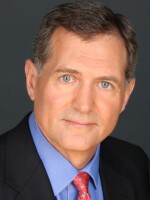If you've ignored the countless rounds of fruitless talks on Iran's nuclear program for the past decade, you haven't missed much. But today would be a good day to start paying attention.
Iran and six world powers are meeting in Geneva on Wednesday in an attempt to reach an interim agreement that would, at minimum, freeze Iran's nuclear program.
The parties got close to a deal in Geneva earlier this month. These negotiations are expected to last several days, and an agreement, assuming there is one, probably won't come before the weekend.
In addition to Iran, the talks include the five permanent members of the U.N. Security Council (the U.S., Russia, Britain, France and China) as well as Germany.
Here's what you need to know.
Improved Atmosphere
Iran's communications with the West are perhaps more positive now than at any time since the country's 1979 Islamic Revolution.
President Hassan Rouhani, who was elected in June, has repeatedly called for better relations in general, and for a deal on the nuclear program in particular.
President Obama spoke by phone at the end of Rouhani's United Nations visit in September, a call that marked the first contact between leaders of the two nations since the 1979 revolution.
Then there was the slickly produced, five-minute YouTube video that was posted on Tuesday featuring Iranian Foreign Minister Mohammad Javad Zarif, the country's chief negotiator.
As a piano plays soothing background music, Zarif calls for Iran to be treated with dignity and respect.
"Join us in ending an unnecessary crisis and opening new horizons," Zarif says in his remarks, delivered in English.
What Will An Agreement Look Like?
The details must still be hammered out, but Iran would be expected to freeze or perhaps roll back the most advanced parts of its nuclear program, particularly when it comes to enriching uranium.
One crucial question is what will happen to Iran's medium-enriched uranium of about 20 percent purity. This can be used for research and medical applications, as Iran notes. But it can also be further enriched fairly quickly to bomb-grade uranium of 90 percent enrichment.
A deal may require Iran to convert some of this medium-enriched uranium to an oxide form as a step toward making it a lower-level fuel used for nuclear power plants.
In addition, Iran is building a heavy-water nuclear reactor near the town of Arak that would generate plutonium, which can also be used to build nuclear weapons. A deal would likely require that construction be halted.
In exchange, the world powers would gradually begin to ease the financial sanctions that have been growing tougher. The harshest sanctions have effectively cut Iran's oil exports in half since last year.
What Would Happen Next
The interim deal now under discussion is seen as the first step in a phased agreement. U.S. officials have suggested it could take another six months to reach a final deal.
Reaching a final accord is likely to be a much tougher proposition. The U.S. and the other world powers want airtight guarantees that Iran's nuclear program is being closely monitored and that Iran will not be in position to pursue nuclear weapons.
However, Iran is a member of the Nuclear Non-Proliferation Treaty, and this does allow Iran to enrich uranium at low levels, the kind used for nuclear power plants. Iran has always insisted that it will never give up this right.
In addition, Iran will want a full lifting of sanctions, something the U.S. and the others will be reluctant to do until they are convinced that Iran has no nuclear weapons ambitions.
Potential Obstacles
The most outspoken critic of a potential deal has been Israeli Prime Minister Benjamin Netanyahu, who argues that Iran is desperate for sanctions relief in the short term, but committed to building nuclear weapons in the longer term.
Netanyahu wants Iran's nuclear program dismantled in its entirety and has no faith that international inspectors will be able to keep tabs on Iran.
Iranian hard-liners may also object to a deal on the grounds Iran shouldn't be offering concessions to the West. But so far, Rouhani does appear to have the backing of Iran's supreme leader, Ayatollah Ali Khamenei.
Saudi Arabia doesn't like the deal either. Saudi Arabia and Iran are locked in a regional power struggle, and a deal on the nuclear program could ease Iran's international isolation as well as its precarious economic condition.
And in the U.S., some in Congress say sanctions are squeezing Iran, so now is the time to increase the pressure, not to ease up. The White House doesn't agree, and there's sure to be a robust debate in the U.S. on whether Iran can be trusted to abide by any agreement.
Copyright 2021 NPR. To see more, visit https://www.npr.org.







